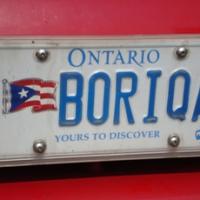Mesaĝoj: 8
Lingvo: English
novialingue (Montri la profilon) 2013-majo-26 14:11:58
I’d like to ask a grammatical question which I already posted last night on the French-speaking part of this forum. I’m very glad that some French-speaking members responded to my query. But I also realize that my question is pretty technical, so I hope that by placing it on the English part of this forum I may reach a wider range of readers. (Of course, I wish I could phrase my question in Esperanto directly, but this will have to wait ...
 )
)In Esperanto, you can convert a primitive adjective into a substantive by substituting the ending -o for the ending -a. The form you get is then primarily a designation of the quality property speaking, e.g. la belo “the beautiful”, la bono kaj la malbono “Good and Evil”. As shown by the contrast between alto and alteco, longo and longeco (cf. PMEG, §38.2.8), this is really an abstract noun as against a name of quality. Thus PMEG:
belo = abstrakta ideo pri belo, bela afero aŭ belo kiel kvalito de io → beleco = belo kiel kvalito de iu aŭ io.
My question is: when an adjective is not primitive, but rather derived from e.g. a substantive, how do you express such an abstract noun? Thus “God” being Dio and “Divine” Dia, how do you convey “the Divine” as a notion, a concept (i.e. an abstract noun)? The problem is that once you have derived an adjective from a substantive (say Dio > Dia), you can’t then go on to build an abstract noun by substituting the ending -o for -a (i.e. Dia > Dio, the way you do it for bela > belo), because the “slot” is already filled: Dio cannot refer both to God and to “(the) Divine”.
How does Esperanto go about dealing with such cases?
Thank you,
Novialingue
PS: Please note that the point of this message is linguistic/grammatical, not theological!
BoriQa (Montri la profilon) 2013-majo-26 16:45:22
novialingue:“God” being Dio and “Divine” Dia, how do you convey “the Divine” as a notion, a concept (i.e. an abstract noun)?I'm no Esperanto expert, just a beginner, but I would suggest to use the suffix:
-eco abstract quality
Therefore:
Dio = God
dia = divine
dieco = a divinity
la dieco = the divine
Another option may be:
-um- indefinite suffix indicating some relation with the root
diumo
x1004 (Montri la profilon) 2013-majo-26 17:00:32
novialingue:...In Esperanto, you can convert a primitive adjective into a substantive by substituting the ending -o for the ending -a.There are no "adjectives", "substantives" in Esperanto in the sense they are in other languages as parts of speech. Instead there are roots, which you can conjugate grammatically into adjectives, nouns, verbs and so on by changing their endings. In Esperanto a noun is a compound word:
arb + o = arbo
dom + o = domo
...
Same for adjectives, they are also compounds in Esperanto:
arb + a = arba
dom + a = doma
So, you do not convert an adjective into a noun - you only change the flavor of the root from adjectival into substantival by changing the final -a to -o.
RiotNrrd (Montri la profilon) 2013-majo-26 18:54:27
Although there may be some subtle difference, for all practical purposes "belo" and "beleco" are synonomous.
Miland (Montri la profilon) 2013-majo-26 19:36:31
novialingue (Montri la profilon) 2013-majo-26 20:08:10
Problem solved! And I wouldn’t even have needed to ask this question, had I bothered to read the Plena Analiza Gramatiko de Esperanto more carefully in the first place...

In concrete terms, the correct answer to my question is dieco. In its treatment of the suffix -eco, PAG (§329, specifically p.445, most particularly note n.3 at the bottom of the page) indicates that in the case of substantival roots the form with -eco denotes both the abstract noun (la dieco = “the divine”) and the name of quality (la dieco = “(the) divinity (of X)”). It’s only in the case of adjectival roots that Esperanto distinguishes between the two types of names, e.g. la belo “the beautiful” and la beleco “(the) beauty (of X)”.
Thanks to all of you for your feedback. Importantly, I'm aware that some of you mentioned the correct answer. But you know, some believe only what they see; for my part I tend to believe only what I read: we all have our shortcomings
 .
.Novialingue
sudanglo (Montri la profilon) 2013-majo-27 10:16:00
In other words, if dia or dieca won't do, use divina.
Via robo estas absolute divina.
Rugxdoma (Montri la profilon) 2013-junio-04 16:00:49
sudanglo:If a concept can't be expressed in Esperanto with the basic parts of speech endings or the affixes, or by some other combinatorial possibility, you look around at the other European languages and filch a new word.Tiu vorto estas iom malhelpema por euxropanoj, cxar gxi similas al "divena", kiu en kelkaj euxropaj lingvoj havas la vokalon i.
In other words, if dia or dieca won't do, use divina.
Via robo estas absolute divina.
This word is a bit confusing for Europeans, because it is so like "diveni", which is written with an i in some European languages.




